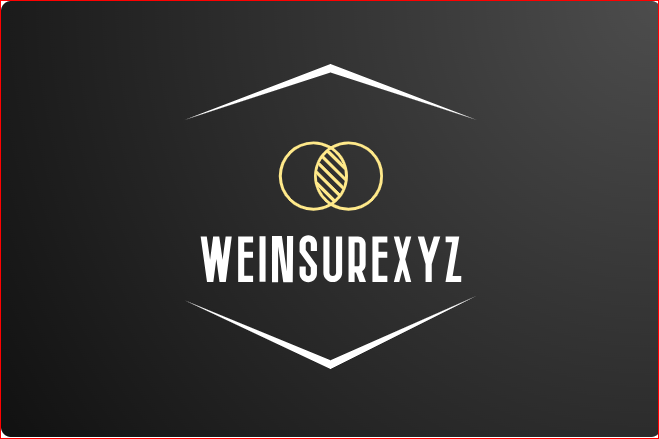What Is Business Interruption Insurance?
Business Interruption Insurance can be added to your Property Insurance or Business Owner’s Policy. When a business is forced to close down temporarily, Business Interruption Insurance can pay its lost income and fixed costs.
What Does Business Interruption Insurance Cover?
Fires, storm damage, and other covered property claims can do major damage to your workplace, often forcing you to shut your doors while you rebuild or relocate. When that happens, Business Interruption Insurance can reimburse your business for:
- Lost income. Whether it’s for days, months, or years, shutting down your business will cause your business to lose revenue. Business Interruption Insurance can reimburse your business for its normal monthly income, usually for a time period designated by your policy.
- Funds to meet your fixed costs. Salaries, rent, healthcare costs, and business insurance premiums are all fixed costs that your business has to pay throughout the year. When your business shuts down and is unable to bring in revenue, you’re still responsible for covering these costs. Few small businesses have enough savings to pay for their employees’ salaries if they shut down for a few months. Business Interruption Insurance helps keep your business out of debt and retain its employees in the wake of a covered Property Insurance claim.
- Relocation expenses. Depending on the severity and type of damage your property suffers, it may make sense for your business to relocate temporarily or permanently. If you do, BII can pay for your moving costs and other expenses related to relocation.
- Extra expenses. You might find there are various incidental costs related to closing, relocating, or repairing your business. Many policies will also cover these other costs.
- Lost revenue from other scenarios like government-mandated closures. What happens when your government closes the street you work on? If your municipality orders you to shut your doors as part of safety or security measures, Business Interruption Insurance can pay for your lost revenue, thanks to its “civil ingress / egress” provision.
More to Property Insurance than Just Property
Let’s say a storm destroys your office. Your Property Insurance covers your business’s commercial property, giving you money to replace it. But that is often not enough for companies to get back to “business as usual.”
Property Insurance can supply you with the money to fix your office, but it takes time to buy new equipment, supplies, and other property to replace what was destroyed. It may take weeks or months to repair your office space.
A restaurant that suffers major damage in a storm will need time to clean, rebuild, and repair its property. It may have a check from its Property Insurance policy but still be unable to reopen for a long time. After major storms, repairmen are often overwhelmed and it can take a long time for them to fix your business premises. Once the property is fixed, your business may need to be inspected (often leading to further delays).
Business Interruption Insurance covers you in these scenarios, helping you meet your financial obligations and pay employee salaries while your business works to rebuild.
What Incidents Are Not Covered by Business Interruption Insurance?
Business Interruption Insurance is a part of your Property Insurance and will only pay for your lost income and other expenses related to covered Property Insurance claims, such as:
- Fire Damage
- Theft
- Vandalism
- Certain weather events
But Property Insurance doesn’t cover all storms or weather events. Often, if the storm is given a name by the National Weather Service (or other government agency), standard Property Insurance won’t cover the storm damage.
Here’s an example. If tropical storm Dimitri slams the Gulf Coast, a shrimp fishery in Galveston, Texas, may not be covered by its Property Insurance.
Frequently, businesses need to purchase separate coverage for hurricanes, floods, and other natural disasters.
BOPs with Business Interruption Coverage
If your business needs more than a year’s worth of Business Interruption Insurance, it may lose its eligibility for a Business Owner’s Policy.
BOPs package Property and General Liability Insurance together in discounted small-business insurance policies for companies with lower risk exposures. If you want to qualify for a BOP and save money on your insurance premiums, remember that your policy won’t come with more than 12 months of Business Interruption Coverage.
Business Interruption Insurance: a Case Study
A small grocery store loses part of its roof during a severe windstorm. The store suffers major leaks, which ruin some food and damage the floor and walls. In addition, when the power goes out, much of the store’s perishable inventory is lost.
When this happens, the grocer’s Property Insurance will pay for:
- Fixed costs like employee salaries
- Income lost from having to shut down the business for the month or two it takes to finish the repairs.
If the business doesn’t have BII, it may be unable to make loan payments, pay taxes, or pay its employees as it rebuilds. This can lead to catastrophic consequences: defaulting on loans, accruing fines from the IRS, and losing trusted staff, any one of which could translate to serious long-term financial difficulties.
Common Pitfalls and Misunderstandings about Business Interruption Insurance
Be aware of these limitations of Business Interruption Insurance to ensure that your business receives adequate coverage if and when you have to submit a claim.
- Policies often don’t cover the first few days after a claim. Many insurance companies don’t cover the days immediately after your business’s property is damaged. Only after this “time deductible” passes will your Business Interruption Insurance kick in. This means you need to make sure to have enough savings to cover a few days of operating expenses.
- Insure your business for its projected income, not just its current income. Many small businesses are growing businesses. That means that this month your startup’s receipts may only be $5,000, but by the end of the year, you’re hoping to do $7,000 worth of monthly business. If it’s reasonable to expect that your future income will be more than your current income, talk with your agent about insuring at your projected income level.
- Be prepared for extra expenses. Your policy can include reimbursements for “extra expenses,” which can help your business cover unforeseen expenses like rebuilding your offices to code. Your office space may have been worth $200,000, but the cost to rebuild it to the current building code might be higher than that. Extra expense coverage with your Business Interruption Insurance can help your business pay for these unexpected costs.
Lightning-Fast Online Insurance
When you’re ready to secure a Business Interruption Insurance policy for your business, fill out our simple online insurance form. Our agents can send you a free insurance quote in as little as 15 minutes. When we say “free,” we mean it. Contact our agent for a free, no-strings-attached quote on your Business Interruption Insurance or other policy.


